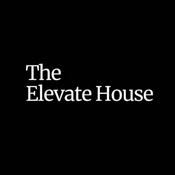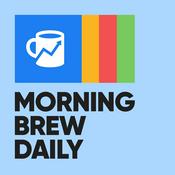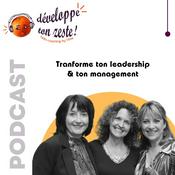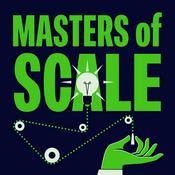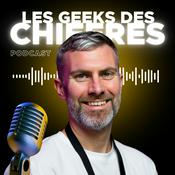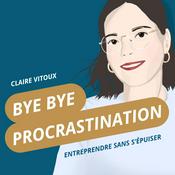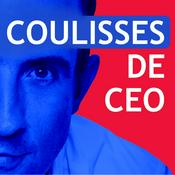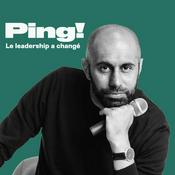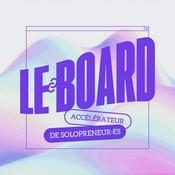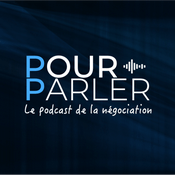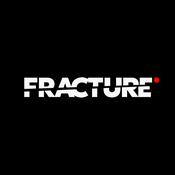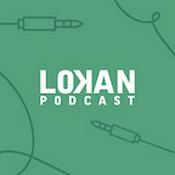45 épisodes

Cloud infra, with Kurt Mackey (Fly.io) - S04E11
06/7/2023 | 35 min
In this episode, we speak with Kurt Mackey, CEO of Fly.io. We discuss what it's like running physical servers in data centers around the world, why they didn't build on top of the cloud, and what the philosophy is behind the focus on pure compute, networking, and storage primitives. Kurt sheds light on the regions where Fly.io is most popular, why they’re adding GPUs, and the technology that makes it all work behind the scenes.Hosted by David Mytton (Console) and Jean Yang (Akita Software).Things mentioned:Ars TechnicaY CombinatorMongoHQServerCentral (now Deft)MiamiNAPAWSThe Everything StoreVercelSimon WillisonDjango datasetChatGPTNvidiaFirecracker VMNomadPhoenixLiteFSSQLiteHacker NewsElixirDeno FreshRemixM2 MacBook Air Nvidia A100 GPU ABOUT KURT MACKEYKurt Mackey is the CEO of Fly.io, a company that deploys app servers close to your users for running full-stack applications and databases all over the world without any DevOps. He began his career as a tech writer for Ars Technica and learned about databases while building a small retail PHP app. He went to Y Combinator in 2011 where he joined a company called MongoHQ (now Compose) that hosted Mongo databases which he sold to IBM, before turning his attention to building Fly.io. Highlights: [Kurt Mackey]: The original thesis for this company was there's not really any good CDNs for developers. If you could crack that, it'd be very cool. The first thing we needed was servers in a bunch of places and a way to route traffic to them. What we wanted was AnyCast, which is kind of a part of the core internet routing technology. What it does is it offloads getting a packet to probably the closest server, to the internet backbones almost. You couldn't actually do AnyCast on top of the public cloud at that point. I think you can on top of AWS now. So we were sort of forced to figure out how to get our IPs, we were sort of forced into physical servers for that reason. For a couple of years, it felt like we got deeply unlucky because we had to do physical servers. You’d talk to investors, and they'd be like, “Why aren’t you just running on the public cloud and then saving money later?” Then last year, that flipped. Now, we're very interesting because we don't run on the public clouds.— [0:11:14 - 0:12:03] [Kurt Mackey]: I think there's another thing that we've probably all reckoned with since 2011; a lot of the abstractions were wrong. As the front end got more powerful, I think we tried a lot of different things for— and what we ended up doing was inflicting this weird distributed systems problem on frontend developers. So I think that, in some ways, we just have the luxury of ignoring a lot of things that people have been trying to figure out for 10 years because we probably think that's wrong at this point. So we happen to be doing well at a time when server-side rendering is all the rage in a front-end community, which is perfect for us and nobody really cares about shipping static files around in the same way. I think it's just evolutionary. We kind of have a different idea of what's right now and can do simpler things and then we'll probably get big and complicated in 10 years and be in the same situation again.— [0:18:25 - 0:19:11]Let us know what you think on Twitter:https://twitter.com/consoledotdevhttps://twitter.com/davidmyttonOr by email: [email protected] ConsoleConsole is the place developers go to find the best tools. Our weekly newsletter picks out the most interesting tools and new releases. We keep track of everything - dev tools, devops, cloud, and APIs - so you don’t have to. Sign up for free at: https://console.dev

Serverless databases, with Monica Sarbu (Xata) - S04E10
29/6/2023 | 29 min
In this episode, we speak with Monica Sarbu, CEO of Xata. We start with the philosophy behind serverless databases, why developers shouldn't need to think about relational databases, search, and analytics, whether the performance hit of accessing a database over HTTP matters, and how database branching works. She also talks about Xata’s plans for a global database, the company’s focus on UI developers, and what other databases are doing wrong.Hosted by David Mytton (Console) and Jean Yang (Akita Software).Things mentioned:Xatatupu.ioElasticPlanetScaleQuicker serverless Postgres connectionsCloudflare WorkersAirtableXata ChatGPT integrationApple Mac ABOUT MONICA SARBU:Monica Sarbu is the Founder and CEO of Xata, a serverless database built for modern development. Prior to that, she worked on an open-source monitoring solution called Packetbeat which was acquired by Elastic in 2015. She is also the co-founder of tupu.io, a non-profit initiative that offers free mentorship to women, people of color, and other underrepresented groups in the tech industry. Highlights: [Monica Sarbu]: The idea of a single API is that because, like I said, this scenario happens in every company out there; when they start a new web application, they need to build this data platform internally. My thinking was why [does] every company out there need to reinvent the wheel when we can provide all this functionality: database, search functionality, analytics, time series data as well, and under a single API? This was the main purpose of having a single API.— [0:05:14 - 0:05:49] [Monica Sarbu]: I've seen that there are so many companies out there that are building their data platform on top of Airtable and they are developers. The reason behind that was that it's easier to use, and they had– While I was speaking with so many companies, I've seen so many hacks because they had hundreds of Airtables. They were synchronizing between them because you cannot really store a lot of data in one Airtable. My idea is — especially with serverless applications — that when you're building a web application, you have most of your logic in a lambda function so you cannot really use any of these databases and services that are out there, right? So Airtable was an easy-to-use approach but Airtable was not really meant to be built as a database. I've seen that there is a huge opportunity to build something that is as easy to use as Airtable but as scalable as a traditional database and also powerful as a traditional database.— [0:25:12 - 0:26:16] Let us know what you think on Twitter:https://twitter.com/consoledotdevhttps://twitter.com/davidmyttonOr by email: [email protected] ConsoleConsole is the place developers go to find the best tools. Our weekly newsletter picks out the most interesting tools and new releases. We keep track of everything - dev tools, devops, cloud, and APIs - so you don’t have to. Sign up for free at: https://console.dev

Creating Julia, with Jeff Bezanson (JuliaHub) - S04E09
22/6/2023 | 31 min
In this episode, we speak with Jeff Bezanson, one of the co-creators of the Julia programming language and the CTO of JuliaHub. We start with the history of Julia and why it took a while to take off, the key principles behind the language, how it provides the speed of C with the ease of Python, and what it's been like running such a large open-source project. He sheds light on the original motivation for Julia, the process of creating it, and its involvement in AI.Hosted by David Mytton (Console) and Jean Yang (Akita Software).Things mentioned:"Telescoping Languages by Ken Kennedy"“Julia: Dynamism and Performance Reconciled by Design”Donald FischerChris Rackauckas: "A Julia Library for Neural Differential Equations"RR: Record and Replay FrameworkDell XPS laptop preloaded with UbuntuABOUT JEFF BEZANSONJeff Bezanson is one of the co-creators of the Julia programming language, along with Stefan Karpinski, Alan Edelman, and Viral B. Shah. He is also a co-founder of JuliaHub, a company that grew out of this project. He has a Ph.D. from MIT where he worked as a research scientist and he has authored a number of academic papers on the Julia language. The intention behind the creation of Julia was to establish a language that was both high-level and fast. His work on it has earned Jeff the J. H. Wilkinson Prize for Numerical Software.Highlights:[Jeff Bezanson]: You had to give up performance. That was just a law of the universe that they all learned. Then if you wanted performance, you had to use C or Fortran or something. This was just the way it was. I got introduced to that world of thinking in college and I thought it was really surprising because I knew that high-level languages could be fast. I knew there were good Lisp implementations, you had the ML family languages, there were really good high-level languages that had really, really good compilers and could be fast. And nobody seemed to be using them, which I just thought was amazing. I made it this mission to “Can we get all these people to realize that high-level languages can be fast, and they should be using a high-level language that's fast?” So [Julia] is my attempt to do that.— [0:02:59 - 0:03:44][Jeff Bezanson]: People have been trying to speed up dynamic languages of various kinds for a long time. That's been one of the long-running research threads in computer sciences, starting with a language like Smalltalk, for instance. How do you make it run fast? There's a whole zoo of both dynamic and static techniques. There are some really cool stuff people have invented to take these languages that you can't necessarily statically analyze using standard compiler techniques, and yet, nevertheless, generate fast code from them. It’s a fun game to play is how do we compile these languages that are not cooperative? So that makes it a challenge, which makes it a good research problem. But to me, it's kind of annoying because why do you always have to fight the language design? So instead, I approached it from the opposite direction and said, “All right. What are all the techniques that are known and available for doing this? Then how would you design a language to make those techniques work well?”— [0:13:18 - 0:14:12]Let us know what you think on Twitter:https://twitter.com/consoledotdevhttps://twitter.com/davidmyttonOr by email: [email protected] ConsoleConsole is the place developers go to find the best tools. Our weekly newsletter picks out the most interesting tools and new releases. We keep track of everything - dev tools, devops, cloud, and APIs - so you don’t have to. Sign up for free at: https://console.dev

WebAssembly, with Matt Butcher (Fermyon) - S04E08
15/6/2023 | 37 min
In this episode, we speak with Matt Butcher, CEO at Fermyon. We discuss the four use cases for WebAssembly, why Wasm’s sandboxed approach is so secure, whether there's any danger retrofitting other use cases onto a language that was originally designed for the web, and how limitations like the lack of full networking support are going to be resolved.Hosted by David Mytton (Console) and Jean Yang (Akita Software).Things mentioned:OpenStackKubernetesDockerHelmThe Illustrated Children's Guide to KubernetesMicrosoftSingleStoreShopifyVMwareFermyon SpinFermyon CloudWizerwasm-optMacBook ProDell Ultrawide MonitoriPad ABOUT MATT BUTCHERMatt Butcher is the CEO of Fermyon. He is also a software engineer, tech author, speaker, and ex-professor. Formerly a principal software development engineer for Microsoft, he led a team of engineers that built open-source tools for cloud-native computing. They were responsible for Helm, Draft, OAM, Brigade, Krustlet, CNAB, Porter, Duffle, the VS Code Kubernetes Extension, and many others. Together with a team of 10 people from Deis Labs at Microsoft, he started Fermyon, a lighter, faster, and truly serverless cloud, architected to compile and ship code as Wasm binaries. Highlights:[Matt Butcher]: When Luke wrote his first blog post and said, “This is for a web browser,” it was built to not be particularly web-browser specific. It really just defined a machine code format in a way to execute that format. That was what kind of drew us to it as a technology. In the core WebAssembly 1.0 specification, there's nothing in there that binds you to a web browser environment, it’s just a straight-up runtime definition. So it was fairly easy to sort of pluck out a WebAssembly runtime and drop it somewhere else. In fact, there are several different WebAssembly runtimes that are not based on the browser at all. — [0:13:36 - 0:14:13][Matt Butcher]: If I were thinking about writing a new database, a new high-performance, multithreaded database, WebAssembly would not be the format I would target for this, right? Because there, you want to be able to do a lot of low-level management. Every little microsecond that you can tease out of IO and process manipulation is valuable. So I don't think we'll see those kinds of highly, highly IO-intensive tasks really land in WebAssembly for years because it's going to take the ecosystem a long time to really tune up and be fine-grained enough to deal with those things without compromising on security. It is possible that maybe never will we really want to write the kind of high-performance databases or high-performance number-crunching computing kinds of systems in WebAssembly. — [0:27:57 - 0:28:44] Let us know what you think on Twitter:https://twitter.com/consoledotdevhttps://twitter.com/davidmyttonOr by email: [email protected] ConsoleConsole is the place developers go to find the best tools. Our weekly newsletter picks out the most interesting tools and new releases. We keep track of everything - dev tools, devops, cloud, and APIs - so you don’t have to. Sign up for free at: https://console.dev

Why engineering sucks, with Eli Schleifer (Trunk) - S04E07
08/6/2023 | 36 min
In this episode, we speak with Eli Schleifer, Co-CEO of Trunk. We discuss why engineering sucks, what developers can learn from how software gets built at Google and Uber, how individual developers can improve their coding experience, and why Git commit messages are useless.Hosted by David Mytton (Console) and Jean Yang (Akita Software).Things mentioned:Mythical Man-MonthGoogleUberBitTorrent"Git commit messages are useless"WarpSlackLinearVisual Studio CodeMacBook Pro M1 ABOUT ELI SCHLEIFEREli Schleifer is the founder and co-CEO of Trunk, an all-in-one solution for scalably checking, testing, merging, and monitoring code. It helps developers write more secure code and ship faster to redefine software engineering at scale. He was previously a technical lead manager and a systems architect at Uber ATG, where he led the architecture and engineering of its self-driving platform. He also lead a team of engineers and technical leads in the development of multiple products under the YouTube Director umbrella and was a lead senior software development engineer at Microsoft. Highlights:[Eli Schleifer]: We should trust our engineers and also understand that code is constantly – it's a living document. It's changing all the time. If something gets in that's imperfect but not terrible, that's also okay. So if you have an engineer put up a pull request, you have feedback, leave that feedback and stamp the pull request. Assuming there's trust, then the engineer is going to follow up, fix up your comments, and then land that. There's no additional cycle. If you don't stamp it, that means you're going to— you’re basically saying to this person, “I'm going to hold up your work until you show me that you can actually follow through on the things I'm asking about.” That's a level of distrust that, I think, is not good in a highly collaborative working environment.— [0:15:48 - 0:16:28][Eli Schleifer]: I think this is the biggest thing between a smaller startup and a giant tech company: At a giant tech company, at the end of the year, the giant tech company comes to the employee and is like, “Tell me what you did this year and why you have this job. Tell me all the good stuff you did for us.” At a smaller company, all management knows what all the people are actually doing for you. There’s a clear visibility into what those engineers are adding and contributing to the actual company's efforts. I think the biggest thing to focus on when it gets to 200 engineers or 2,000 is: what are these people actually working on? Who's making sure that there's a director of engineering for each of these smaller groups of 30, 40 people to make sure they're actually pushing towards something that matters, that matters to the company, that's going to move the needle? And that those engineers can still feel pride in and feel like they have impact?— [0:27:22 - 0:28:09] Let us know what you think on Twitter:https://twitter.com/consoledotdevhttps://twitter.com/davidmyttonOr by email: [email protected] ConsoleConsole is the place developers go to find the best tools. Our weekly newsletter picks out the most interesting tools and new releases. We keep track of everything - dev tools, devops, cloud, and APIs - so you don’t have to. Sign up for free at: https://console.dev
Plus de podcasts Business
Podcasts tendance de Business
À propos de Console DevTools
Écoutez Console DevTools, Franck Lahoui - Hacker son Futur ou d'autres podcasts du monde entier - avec l'app de radio.fr
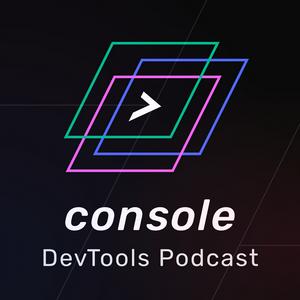
Obtenez l’app radio.fr gratuite
- Ajout de radios et podcasts en favoris
- Diffusion via Wi-Fi ou Bluetooth
- Carplay & Android Auto compatibles
- Et encore plus de fonctionnalités
Obtenez l’app radio.fr gratuite
- Ajout de radios et podcasts en favoris
- Diffusion via Wi-Fi ou Bluetooth
- Carplay & Android Auto compatibles
- Et encore plus de fonctionnalités


Console DevTools
Téléchargez l’app,
Écoutez.




